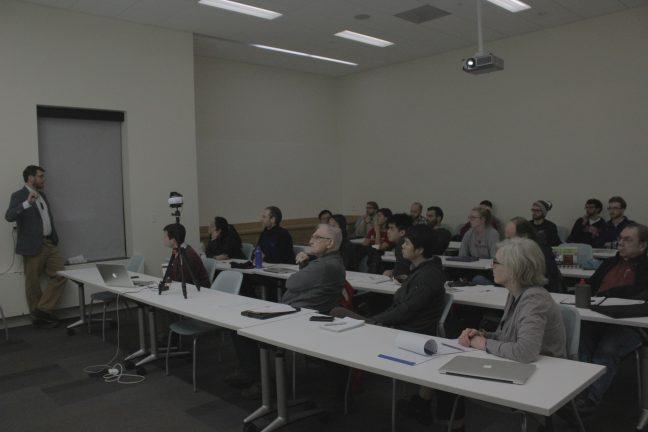University of Wisconsin climate policy experts held their first seminar on formulating effective policy Monday, even as the incoming president has signaled disinterest in combating the issue.
The purpose of the series, Interim Director of the Wisconsin Energy Institute Ian Coxhead said, is to encourage “integration of the natural and social sciences” in forming climate policy.
In the first lecture of the series, which will run every other week this spring, Greg Nemet, associate professor of public affairs and environmental studies, presented a seminar focusing on energy, technology and policy.
“Policymaking in energy involves multiple objectives,” Nemet said. “We want clean, cheap and reliable.”
Though ideally, energy initiatives would combine these three goals, trade-offs are often made depending on the issues at hand and the perspectives of individuals involved in energy decisions.
Emphasis on the cleanliness, cost or reliability of energy sources is reflected in what Coxhead called the “neglected” nature of the social sciences in discussions about energy policy.
“All sides, social consequences, policymaking and energy science need to come together and build a community,” Coxhead said.
Despite concerns audience members voiced about the future of clean energy initiatives under President Donald Trump’s administration, Nemet remains optimistic energy change will happen.
Citing not only international energy treaties and the “strong incentives” to respond to the detrimental effects of climate change, Nemet believes the millennial generation is the key to a more sustainable future.
In Nemet’s view, not only are millennials more aware of climate issues and more concerned with the declining health of our planet, but the “open mindset” associated with the generation may just allow for the “fluidity and ability to holistically assess and address the problem.”
Indeed, in the lecture hall itself, UW students in the audience tended to be in a similar position as sophomore attendee Grace Jensen. Jensen, an aspiring major in electrical engineering, attended the lecture hoping to peak her interest in environmental issues.
Looking into clean ways to provide energy to Midwestern houses, Jensen, like many students in the audience, turns her focus to the scientific and engineering side of clean energy and climate change.


